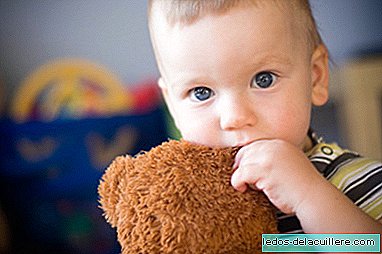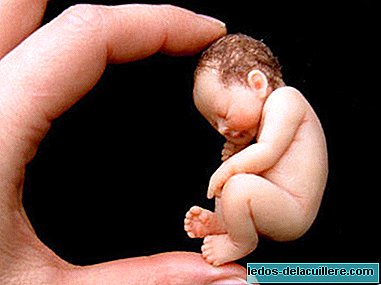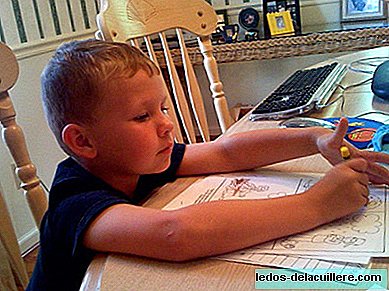
Babies explore their surroundings with their mouths and it is not uncommon for children to nibble on what is within their reach (even when they are sucking!). But it's around two or three years when children bite otherwise, not with the desire to explore but as a manifestation of your feelings or desires.
The reasons why children bite are different in each other. Some little ones bite out of frustration or can also do it simply to protect what they think is their property. Other children do so when they feel threatened, overwhelmed or inferior in terms of strength or verbal ability. They can also pretend to get the attention of the adult, parents or caregivers.
They can bite objects, bite themselves and, more frequently, bite other children or the elderly. If this behavior appears, we must try to detect the cause of the problem and follow some steps to, as far as possible, prevent it from recurring.
Identify the cause of the biting behavior. Parents and educators must observe a series of variables that will help us determine the cause of the problem in order to act properly. What do we have to look at ?: at what time do they bite more, at what times, at what activities (group, individual ...) if they bite the one closest to them or look for the “victim”. If they do it to get something, to defend themselves or as a usual way of interacting with classmates ...
Learn to recognize the signs that indicate the child is about to bite.
Avoid or adapt as much as possible these situations (prevention) by offering alternatives, or control them directly, teaching the little one who bites to act otherwise.
If we achieve that the child, in a risk situation, has been controlled and does not bite, we will have to reinforce said behavior so that he is aware of it and can repeat it.
What to do if my child bites?
If the child has already bitten (and he has done it repeatedly, that is, this behavior lengthens over time and is not simply an isolated bite), what can we do?
We must guide the behavior immediately and firmly, setting the norm "Forbidden to bite"Biting is not a game, it hurts.
We will focus attention on the “victim”, because it has hurt and we must see that it is okay. The biter must understand that he has hurt and that it is not a good way to get attention, that we care about that other person who has suffered the bite. The biting behavior does not give good results for those who do (it will not get, for example, to get a toy if it is what he wanted and that is why he has bitten), since we are worried about the hurt person and recriminate that behavior.
If the little one who has bitten is still angry, we will try to calm down, taking him to a place where we are alone, where we can hold him in his arms if he is upset ... We have to calm him down trying to prevent him from biting or hitting us by holding him firmly but delicately and talking to him. In the end, when it is calm we can talk more calmly and explain what we have indicated in the previous points.
It is better to talk more extensively about the subject when the child is calm, if he is still upset or crying he will probably not listen to what we say. The older the child, the better he can answer us about his reasons for biting, but never "hot." Talking is very important at any time with our children, but especially in these delicate situations.
This behavior has a negative consequence for him, such as not achieving the toy he wanted (at least for now) or separating from his friends because it has hurt them. You have to look at what has happened in each case, because we will have to act differently each time if the situation has been different.
If the child is already able to verbalize the situation, it is convenient to unite the "teether" and his "victim" to talk about the situation, trying to explain the reasons, what they feel and that the child who has bitten apologizes if he finally understands the damage he has done.
You have to explain to the child that hurting is not a good way to resolve a conflict. Of course, here parents preach by example and our education must be governed, among others, by the premise of love and nonviolence.
Do not label the child as "violent", "teether" or any negative nickname because he will feel reinforced in that way of being. Better to discuss this problem between the parents when the child is not present.
Finally, we see that the reasons why a child bites are very diverse but what is clearer is that the little one feels in some way fear or a threat, just as the one who receives the bite feels threatened.
The bite is usually an impulsive response at a time when the child has not yet developed other strategies (verbal and behavioral) to resolve conflicts, to channel their feelings ... What must be sought is that the child redirects this behavior that hurts.












